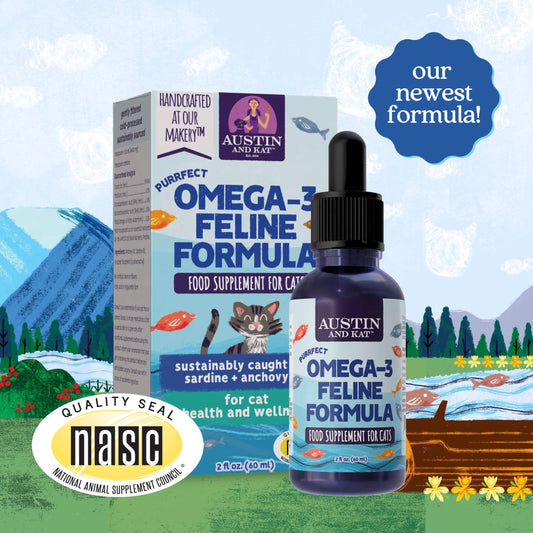
The Language of Coat Health
Not All Skin Issues Look the Same
It's easy to notice when a dog has obvious hot spots or when a cat develops bald patches from over-grooming. But omega deficiency often shows up in quieter, more gradual ways. Keep an eye out for things like:
- Coat texture changes—feeling coarser or less silky than usual
- Dullness that's noticeable under natural light
- Increased shedding or shedding that continues beyond seasonal transitions
- Flaky skin or white particles after brushing
- Increased scratching, especially around ears, belly, or between toes
- Small rough patches on elbows, hocks, or pressure points
- Brittle hair that breaks easily or excessive hairballs in cats
Everyday Moments Matter
Skin and coat changes don't only show up during dramatic seasonal shifts. Many pets experience gradual changes due to diet, environmental factors, stress, or simply aging. Some pets are more sensitive than others, and recognizing what affects your companion's skin health can be the key to providing targeted support.
Cats, in particular, may show omega deficiency through changes in grooming behavior—either excessive grooming that leads to irritation or decreased grooming that results in a lackluster coat.

The Omega Connection
Omega fatty acids function as the building blocks for healthy cell membranes throughout your pet's body, but their impact is most visible in skin and coat health. These essential fats help maintain the skin's natural barrier function—the protective layer that keeps moisture in and irritants out.
The Foundation of Healthy Skin
Think of omega fatty acids as the mortar between bricks in a wall. Without adequate amounts, the "wall" of your pet's skin barrier becomes less effective at maintaining proper hydration and protection. This can lead to increased sensitivity to environmental factors like pollen, dust, or even changes in weather.
EPA (eicosapentaenoic acid) and DHA (docosahexaenoic acid) are particularly important because they help manage the body's inflammatory response. When skin encounters irritants, these omega-3s help ensure the inflammatory response is appropriate and resolves quickly, rather than becoming chronic.
The Science of Quality Coats
Hair follicles rely on adequate omega fatty acids to produce strong, flexible hair shafts. When pets don't get enough of these essential fats, new hair growth may be weaker, and existing hair may become more prone to breakage. The natural oils that give coats their shine and water-resistance also depend on omega fatty acid availability.
The ratio of omega-3 to omega-6 fatty acids matters significantly. While both are important, many commercial diets are heavy in omega-6s (often from grain-based ingredients) and light on omega-3s. This imbalance can contribute to increased inflammation and reduced skin barrier function.
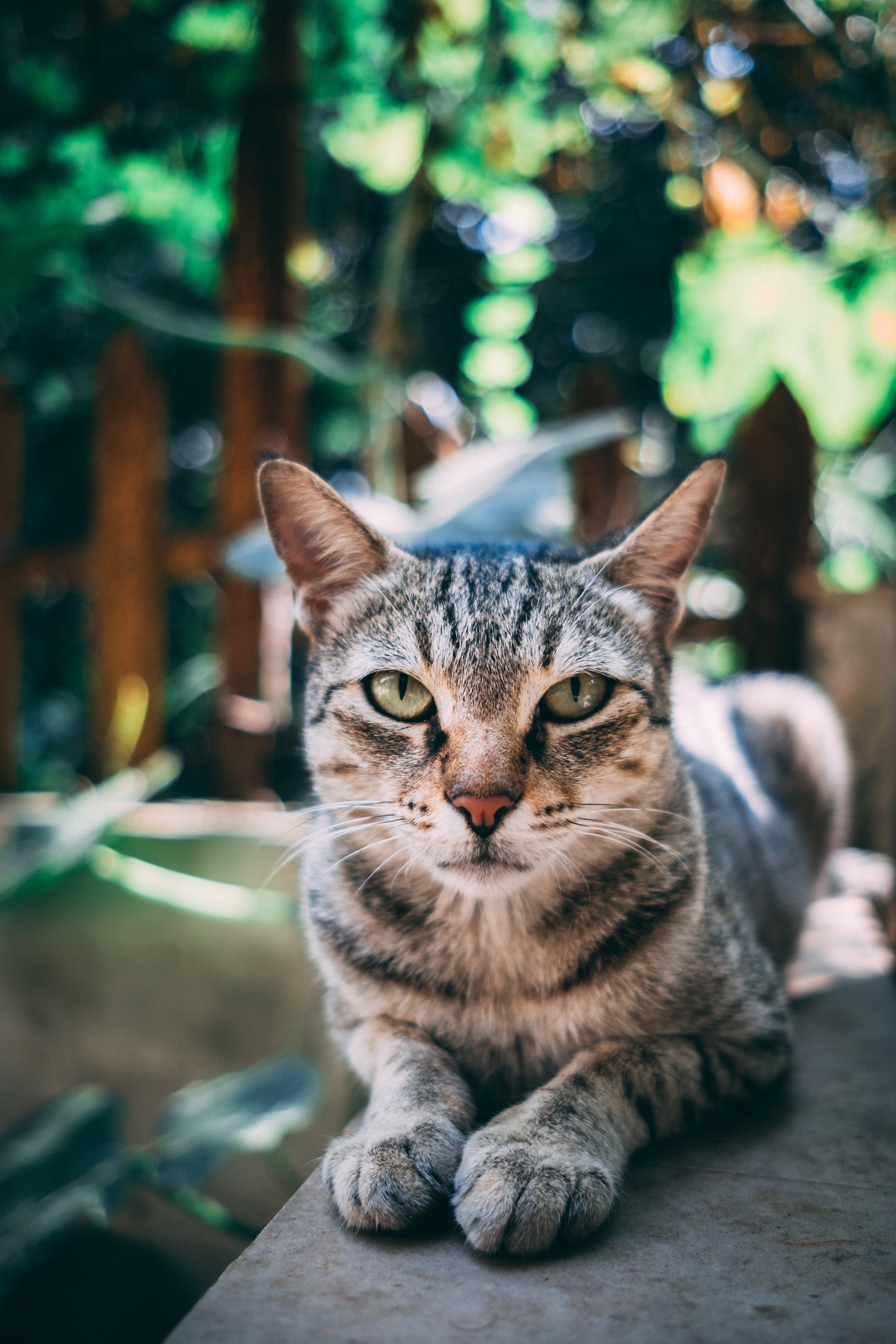
Feline Omega Needs
Cats have evolved with distinctly different skin and coat physiology that creates unique omega fatty acid requirements. Unlike dogs, cats are obligate carnivores whose bodies expect—and function best with—marine-derived omega-3s in their natural triglyceride form.
Feline-Specific Absorption and Metabolism
Cats process omega fatty acids differently than dogs, requiring specific EPA and DHA ratios that complement their faster metabolic rates and shorter digestive transit times. Their systems are designed to efficiently extract nutrients from fish-based proteins, making marine-derived omegas far more bioavailable than plant-based alternatives that work adequately for omnivorous dogs.
Species-Appropriate Sensory Preferences
A cat's acceptance of omega supplementation often depends on maintaining the natural fish characteristics they instinctively crave. The rich, fishy taste and aroma that might overwhelm dogs actually encourages consistent consumption in cats, making species-specific formulations crucial for long-term success.
Indoor Cat Considerations
Indoor cats face unique omega challenges due to limited dietary variety compared to their outdoor counterparts. Without access to natural prey that would provide marine-derived fatty acids, indoor cats particularly benefit from concentrated omega-3 supplementation that addresses both their physiological needs and their evolved taste preferences. This becomes especially important for finicky cats who may reject supplements that don't align with their natural dietary expectations.
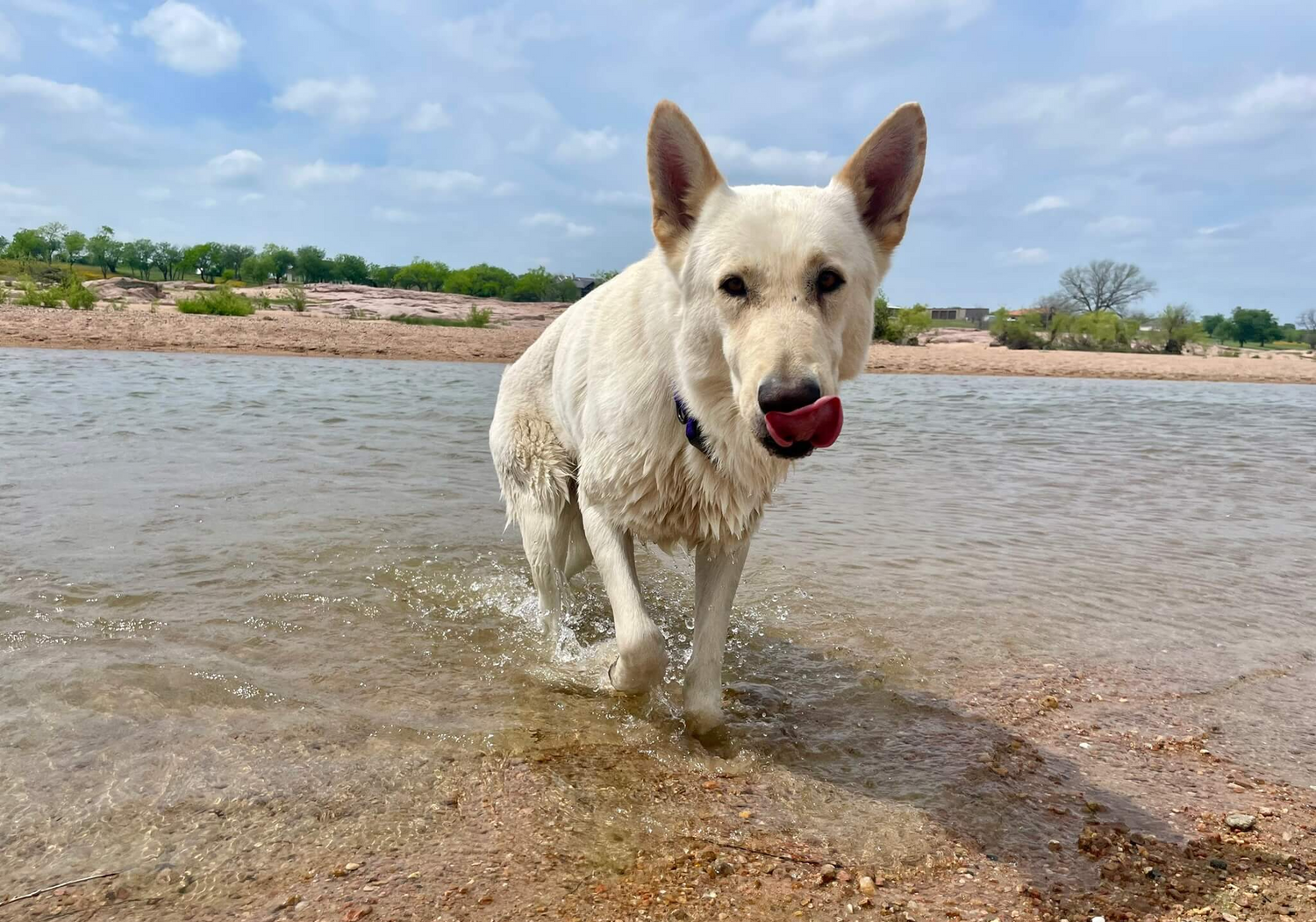
The Case for Daily Omegas
Consistent daily omega supplementation creates a foundation of skin and coat health that can prevent issues before they start. Unlike medications that treat existing problems, omega fatty acids work best when they're allowed to build up in your pet's system and support optimal function over time.
Building Nutritional Reserves
Daily supplementation helps ensure your pet's body maintains adequate levels of EPA and DHA, which can be quickly depleted during times of stress, illness, or increased activity. Think of it like keeping a savings account of essential nutrients that your pet's body can draw from when needed.
Pets receiving consistent omega support often show gradual improvements in coat shine and skin resilience over 6-8 weeks. The changes are typically subtle at first—perhaps slightly softer fur or reduced scratching—but become more pronounced as the body's omega stores reach optimal levels.
Supporting Natural Processes
Daily omega supplementation helps support your pet's natural anti-inflammatory processes. This doesn't mean suppressing normal immune responses, but rather ensuring the body has the tools it needs to manage inflammation appropriately and resolve it efficiently.
Regular omega support also helps maintain healthy sebum production—the natural oils that keep skin moisturized and create that beautiful coat sheen. Pets with adequate omega levels often need less frequent baths because their skin's natural oil balance helps repel dirt and odors.
As one customer shared: "We started Austin on Everything Oil as part of his daily routine when he turned five, just to be proactive. I didn't realize his coat had been getting a little dull until I saw the difference six weeks later. Now he has that pet shine again, and his skin feels so much softer when I pet him."

Strategic Support for Specific Situations
While daily supplementation provides excellent foundation support, there are times when pets benefit from additional or targeted omega support. Understanding when and how to adjust your approach can help you provide optimal care throughout your pet's life.
Seasonal Support Strategies
Many pets experience skin and coat challenges during specific seasons. Winter's dry air and indoor heating can strip moisture from skin, while spring allergies may trigger increased inflammation. Summer's heat and humidity can affect some pets' skin balance, and fall's shedding season may benefit from extra nutritional support.
Environmental Stressor Response
Pets exposed to environmental stressors—whether from air quality, new surroundings, or changes in routine—may benefit from temporarily increased omega support. This could include times of travel, moving to a new home, or periods when air quality is poor due to wildfire smoke or high pollution.
Life Stage Considerations
Puppies going through rapid growth phases, adult pets experiencing higher activity levels, and senior pets managing age-related changes in skin elasticity may all benefit from adjusted omega support. Pregnant and nursing mothers also have increased omega needs to support both their own health and their puppies' development.
Recovery and Transition Support
Pets recovering from skin issues, transitioning between seasons, or adjusting to new diets may benefit from temporary increases in omega support. This helps provide extra nutritional resources during times when the body's needs are elevated.
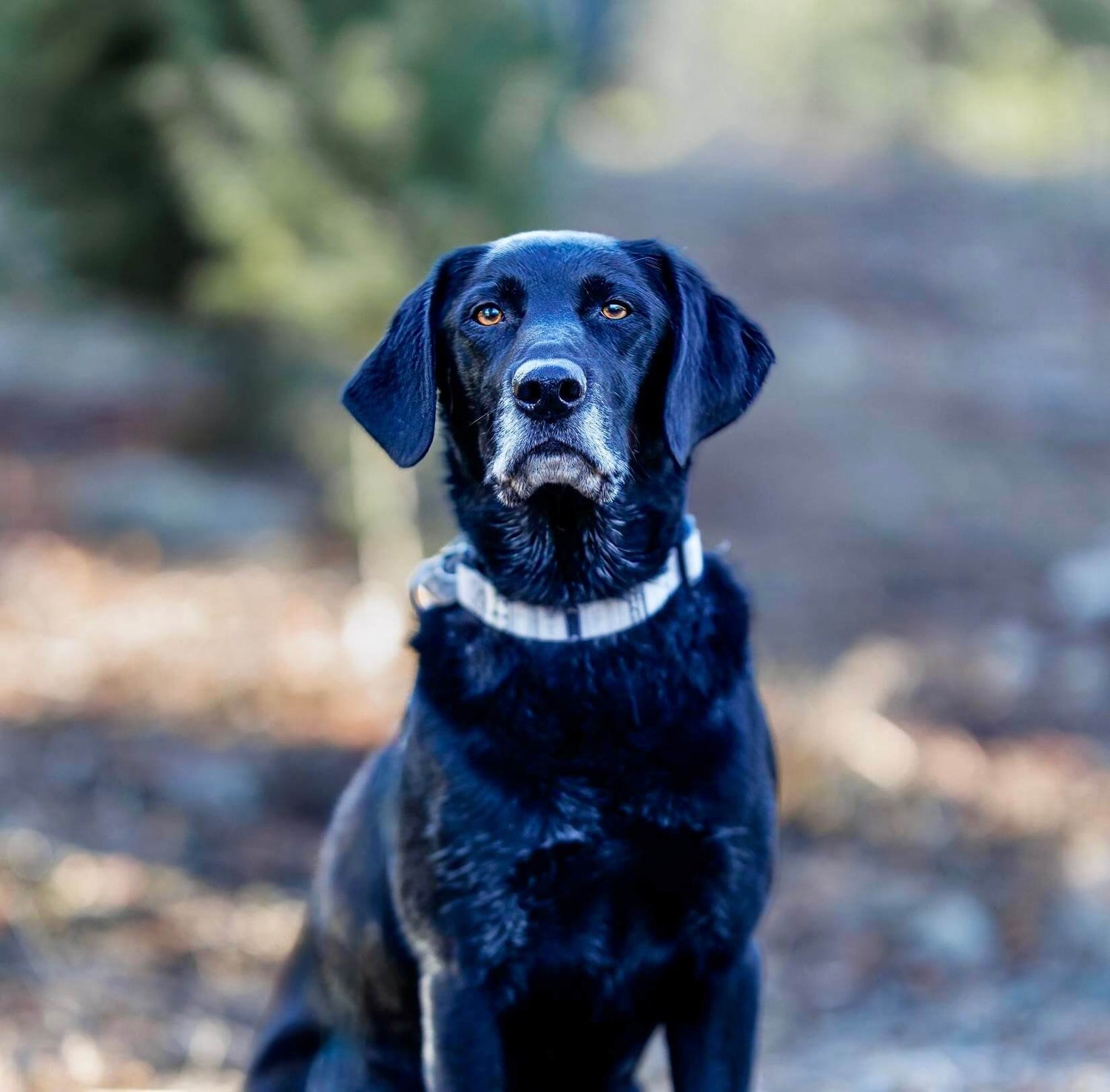
Creating a Skin-Friendly Environment
Your pet's living environment plays a significant role in skin and coat health. Small adjustments can make a meaningful difference in how well omega supplementation works.
Managing Indoor Air Quality
Dry indoor air, particularly during winter months, can challenge even the healthiest skin. Consider using a humidifier to maintain optimal moisture levels, especially in areas where your pet spends significant time. Ideal humidity levels for pets fall between 40-60%, which supports healthy skin function without encouraging bacterial or fungal growth.
Air purifiers can help reduce allergens and irritants that might trigger skin sensitivity. This is particularly beneficial for pets prone to environmental allergies, as it reduces the inflammatory burden on their system and allows omega fatty acids to work more effectively.
Temperature and Comfort Considerations
Extreme temperatures can stress your pet's skin and coat. Provide access to comfortable resting areas that aren't too hot or cold, and consider protective clothing during extreme weather. This isn't about fashion—it's about reducing environmental stress on skin that's still building its omega-supported barrier function.
During summer, ensure adequate shade and ventilation. Hot, humid conditions can challenge skin health, while air conditioning can create dryness. Finding the right balance helps omega supplementation work optimally.

Supporting Omegas with Grooming
How you groom your pet can either enhance or undermine the benefits of omega supplementation. Gentle, supportive grooming practices help maintain the skin's natural barrier while distributing beneficial oils throughout the coat.
Brushing for Distribution and Health
Regular brushing doesn't just remove loose hair—it distributes natural oils throughout the coat and stimulates healthy circulation in the skin. Use brushes appropriate for your pet's coat type, and brush gently to avoid irritating skin that may still be building its omega-supported resilience.
For pets with longer coats, daily brushing prevents mats that can trap moisture and create irritation. For shorter-coated pets, brushing every few days helps distribute oils and removes loose hair before it can contribute to shedding around the house.
Bathing Strategies Less is often more when it comes to bathing pets receiving omega supplementation. Over-bathing can strip away the natural oils that omega fatty acids help produce. Most pets benefit from baths only when genuinely dirty or odorous, rather than on a rigid schedule.
When you do bathe, use gentle, moisturizing shampoos that won't disrupt the skin's natural pH balance. Lukewarm water is ideal—hot water can strip oils and irritate skin, while cold water may not effectively remove dirt and debris.
Supporting Natural Oil Production
Avoid harsh grooming products that strip natural oils. Instead, look for products that support the skin's natural balance. Some families find that pets receiving adequate omega supplementation need fewer grooming products overall, as their skin's natural balance improves.
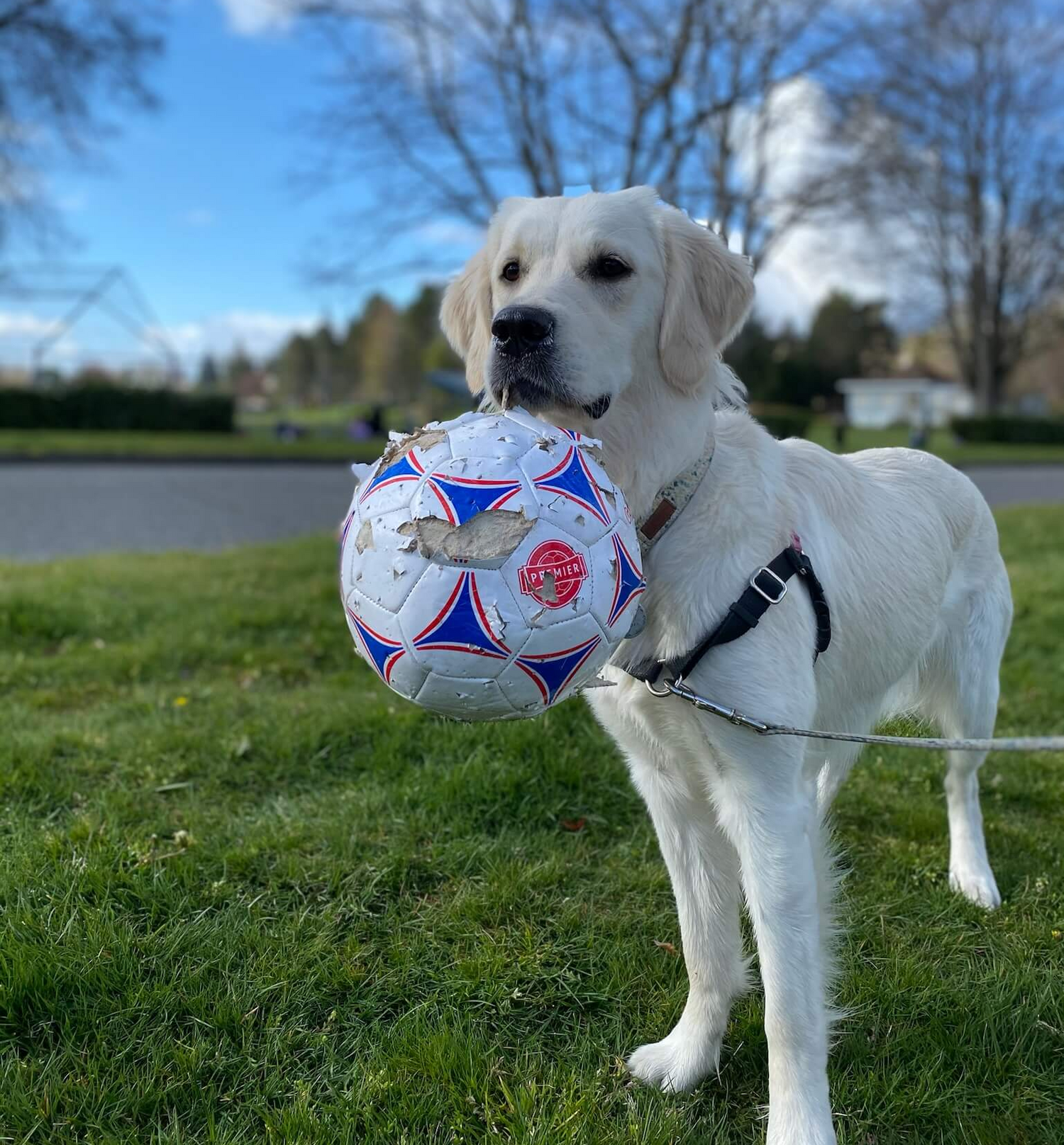
Omega Nutritional Synergies
Quality Protein and Hydration: High-quality protein provides amino acids for healthy hair growth, while adequate hydration supports nutrient transport to skin and hair follicles. Well-hydrated pets often respond more quickly to omega supplementation.
Antioxidant Protection: The vitamin E in Everything Oil and astaxanthin in Marine Algae Oil help protect omega fatty acids from oxidation. Occasional antioxidant-rich treats like blueberries can provide additional support.
Digestive Health: Healthy gut function directly impacts omega absorption. Pets with compromised digestion may need probiotic support to maximize omega benefits, especially after antibiotics or digestive upset.
Exercise and Circulation: Regular, moderate activity promotes healthy circulation, delivering omega fatty acids to skin and hair follicles. Swimming is particularly beneficial for pets with skin sensitivities.
Regular Exercise: Appropriate activity promotes healthy circulation, delivering nutrients to skin and hair follicles.
Stress Reduction: Chronic stress can interfere with nutrient absorption and increase inflammatory responses throughout the body.
Mental Stimulation: Engaging activities help pets maintain overall wellness and may reduce stress-related skin issues.

How Each Format Supports Healthy Skin
Austin's Everything Oil: Comprehensive omega 3/6/9 blend with fish oils, hemp seed oil, and flaxseed oil. Provides broad-spectrum fatty acid support with 1,555 mg omega-3s per teaspoon.
Blanca's Marine Algae Oil: Sustainable omega-3 source with astaxanthin antioxidant support. Provides concentrated EPA/DHA with 1,317 mg omega-3s per teaspoon, perfect for fish-sensitive pets.
Purrfect Omega-3 Feline Formula: Species-specific omega-3 formula designed for cats' unique nutritional needs, featuring sardines and anchovies in ratios optimal for feline physiology.
Complementary Benefits of Multiple Formats
Different pets in the same household may thrive with different omega approaches. Dogs might excel with Everything Oil's comprehensive profile, while cats may benefit from the targeted nutrition of the upcoming Feline Formula. This allows you to provide species-appropriate support while maintaining simple routines.
The oils can also be rotated seasonally or used in combination based on individual needs—foundational daily support with one oil and seasonal adjustments with another.



















